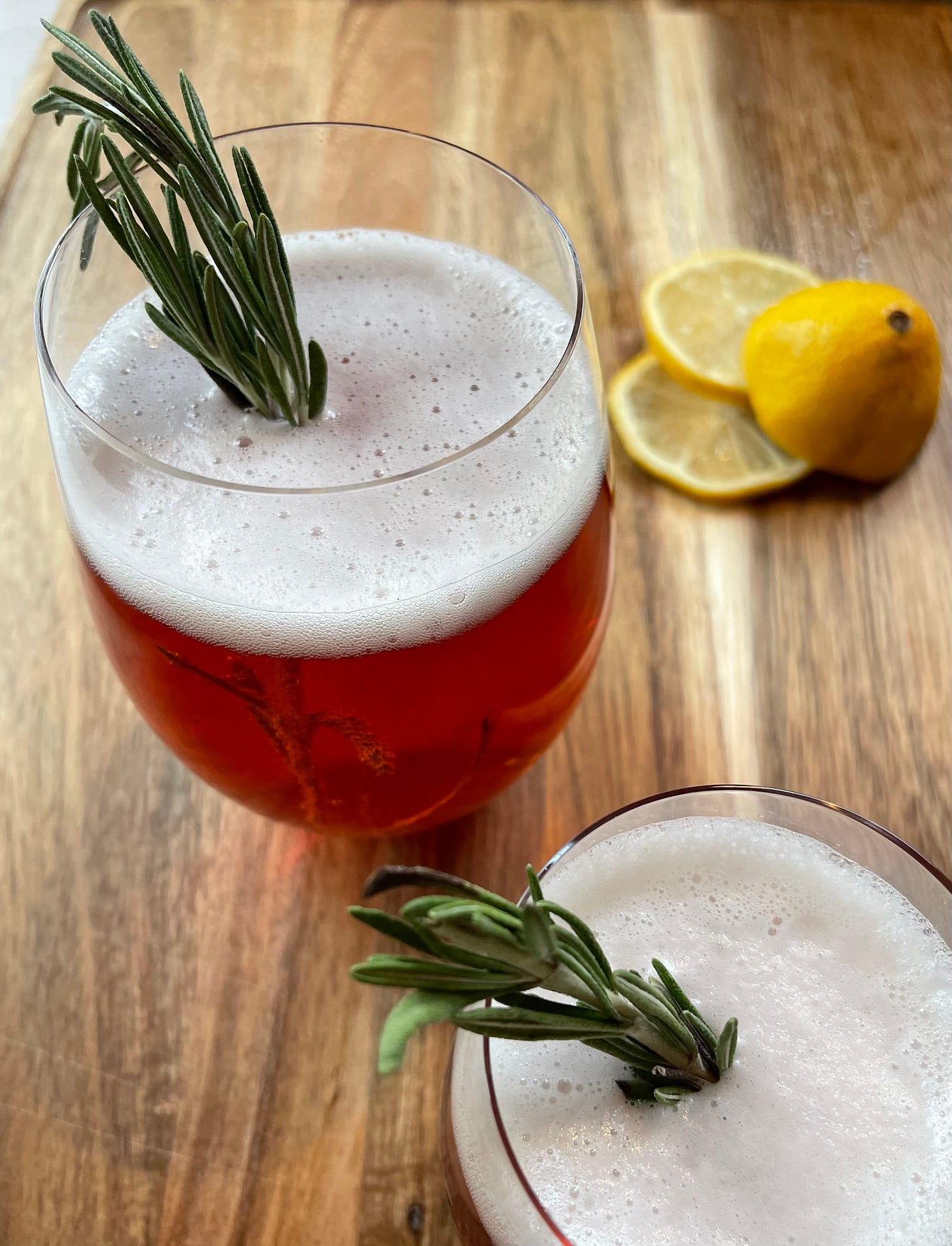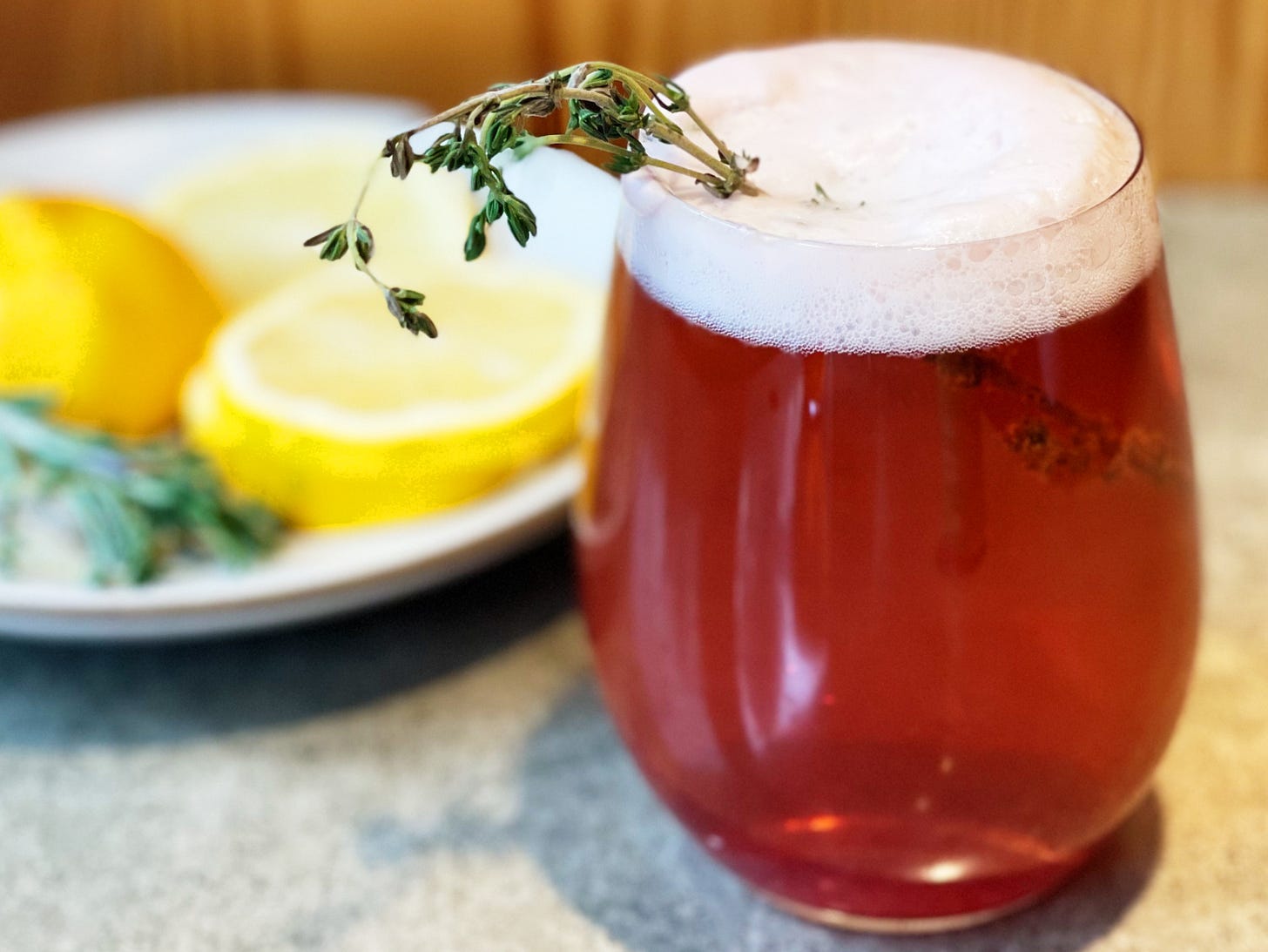Creating Your Brain-Healthy Approach to Holiday Drinking
Low or no alcohol ideas + a round-up of my favorite drinks
Hello, everyone. The holidays are in full swing here, which means I am going out a lot more than usual. Everywhere I go, someone offers me a drink. What’s different this year is I am just as likely to be offered a non-alcoholic drink as a boozy one. Isn’t that amazing? Especially so since I live in a ski town where “après” is a verb and gathering for a drink after skiing is an everyday thing. Seeing non-alcoholic drinks when I am out and about tells me that mindful drinking—the practice of being aware of why and how much alcohol you drink—is taking hold in our culture.
Changing attitudes around drinking alcohol is a fantastic development for brain health. The studies continue to support a low or no-alcohol policy for your brain. Last year at this time I wrote to you about the brain health benefits of cutting back on alcohol. I gave you 7 tips for mindful drinking and some tricks for making really good non-alcoholic drinks. Here’s a summary of what the science says about the effect of alcohol on dementia risk.
Recap of studies on alcohol and dementia
UK biobank study 2022. In this study of 36,678 healthy adults, researchers found that just one pint of beer or glass of wine a day can shrink the overall volume of the brain, with the damage increasing as the number of daily drinks rises. It disspelled the notion that nondrinkers are missing out on brain health protection; abstainers had the most robust brain volume overall.
Korean study 2023. Keeping alcohol consumption to one or two drinks a day lessened the odds of developing dementia in this study of nearly 4 million South Koreans. A change in drinking status—such as an increase in consumption or quitting altogether—was associated with an increased dementia risk. Sometimes called the “sick quitter” effect, quitting may be a marker for heavy drinking.
Lancet Commission 2020. Heavy alcohol intake was added to the Lancet Commission’s list of modifiable risk factors for dementia.
French study 2018. Alcohol use disorder was found to be the most prevalent modifiable risk factor for dementia in France, and was associated with an earlier onset of the disease.
Alcohol and ApoE4 carriers. 25% of Americans carry one or two copies of the ApoE4 risk gene for Alzheimer’s. Several studies suggest this may make the brain more vulnerable to the toxic effects of alcohol. In this prospective study of 2000 participants, ApoE4 carriers who consumed alcohol one or more times per month had a higher risk of Alzheimer’s than those who never consumed alcohol.
Low Alcohol Drinks
I am noticing another brain-healthy development in the drinking culture: the low alcohol drink. At a friend’s family supper over Hanukkah (she made the very best double-wide pan of Zucchini Lasagna from my book), the drink offerings included beer, non-alcoholic beer, and sparkling cider—a fizzy, low alcohol drink made by a local cider house. It was crisp and refreshing, like a tart apple, with bubbles that fit the festive occasion. Clocking in at under 5% alcohol, this cider has about a third of the alcohol as a glass of my favorite red wine.
Another low alcohol moment happened during cocktail hour at a friend’s fancy dinner party. There was a full bar complete with a bartender mixing drinks. As I perused the zero-proof options, all I saw was an alcohol-free beer that I like (by Athletic Brewing Company). But I was in the mood for something more festive. I consider myself a mindful drinker and I do imbibe on occasion. The bartender suggested a Spaghett—a beer cocktail made with lemon juice and bitters. He added a splash of my favorite bitter—Campari—to the NA beer along with lemon juice and a sprig of rosemary. My custom, low-alcohol Spaghett was born. Find the recipe below.
The Spaghett got me thinking about other low and no alcohol drinks I love. This time of year, I want a drink that is refreshing and hydrating (it’s cold and dry where I live), but looks pretty and feels special. I want it to be low in sugar, of course, and devoid of ultra-processed ingredients. Most of all, I appreciate a drink with interesting flavors, especially a nice balance of bitter and sweet. A fun garnish is always a plus!
Here are a few of my favorite drink recipes for the holidays:
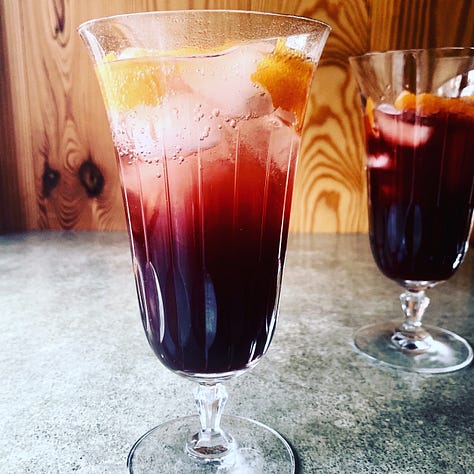
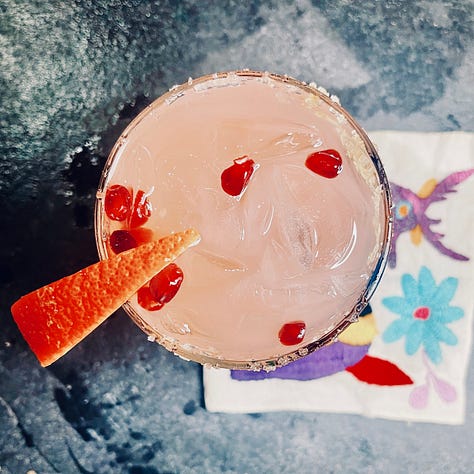
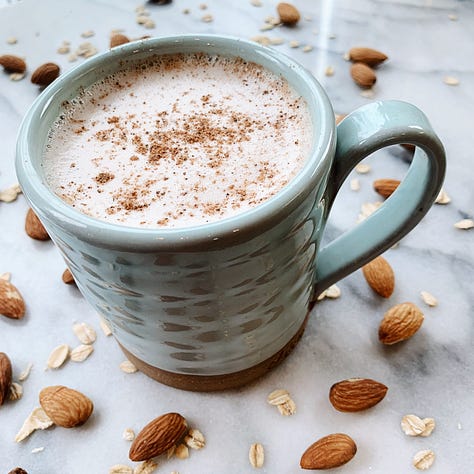
No alcohol/zero proof/spirit free
Cuzco Sour
Spiced Apple Mocktail
Hibiscus Lime Sangria
The Ruby Red
Kombucha Berry Fizz
Almond Oat Nog
Pomegranate Negroni
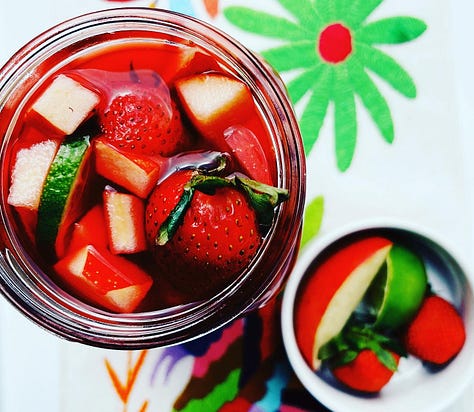
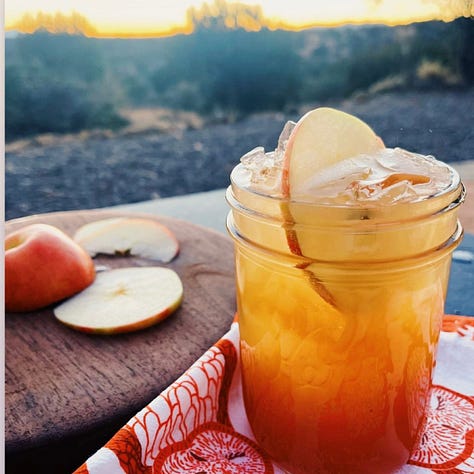
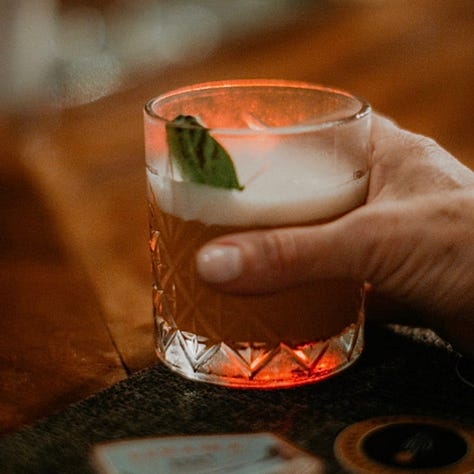
Low alcohol (under 5%)
Spaghett: recipe follows
Radler: Half beer, half lemon sparkling water
Ranch rosé: Chilled hibiscus tea with a splash of tequila
Vermouth and tonic: half vermouth, half Fever Tree tonic, orange peel
Cider spritz: half cider, half seltzer, dash of bitters
Any zero-proof drink, lightly spiked


